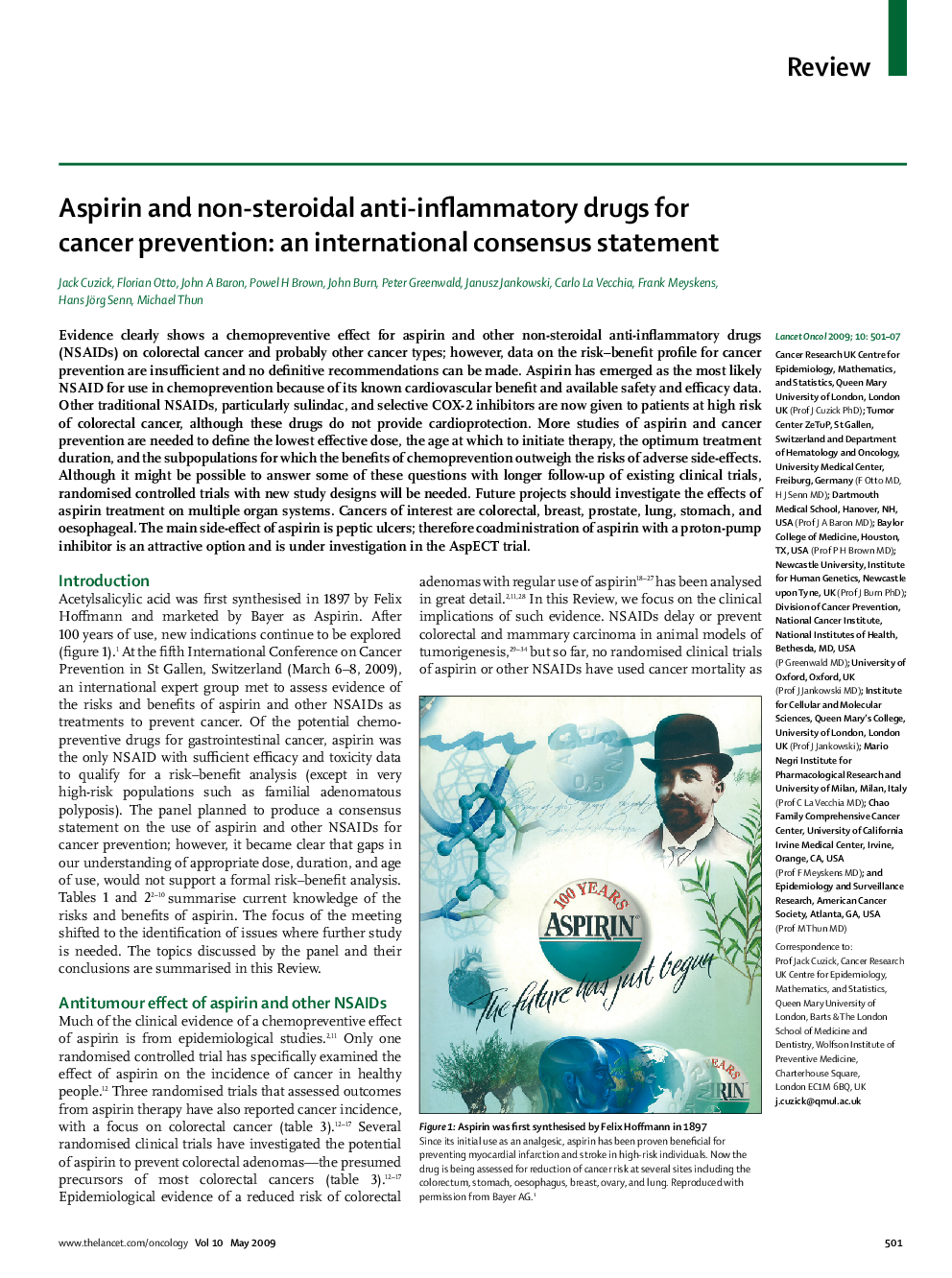| Article ID | Journal | Published Year | Pages | File Type |
|---|---|---|---|---|
| 3994620 | The Lancet Oncology | 2009 | 7 Pages |
SummaryEvidence clearly shows a chemopreventive effect for aspirin and other non-steroidal anti-inflammatory drugs (NSAIDs) on colorectal cancer and probably other cancer types; however, data on the risk–benefit profile for cancer prevention are insufficient and no definitive recommendations can be made. Aspirin has emerged as the most likely NSAID for use in chemoprevention because of its known cardiovascular benefit and available safety and efficacy data. Other traditional NSAIDs, particularly sulindac, and selective COX-2 inhibitors are now given to patients at high risk of colorectal cancer, although these drugs do not provide cardioprotection. More studies of aspirin and cancer prevention are needed to define the lowest effective dose, the age at which to initiate therapy, the optimum treatment duration, and the subpopulations for which the benefits of chemoprevention outweigh the risks of adverse side-effects. Although it might be possible to answer some of these questions with longer follow-up of existing clinical trials, randomised controlled trials with new study designs will be needed. Future projects should investigate the effects of aspirin treatment on multiple organ systems. Cancers of interest are colorectal, breast, prostate, lung, stomach, and oesophageal. The main side-effect of aspirin is peptic ulcers; therefore coadministration of aspirin with a proton-pump inhibitor is an attractive option and is under investigation in the AspECT trial.
